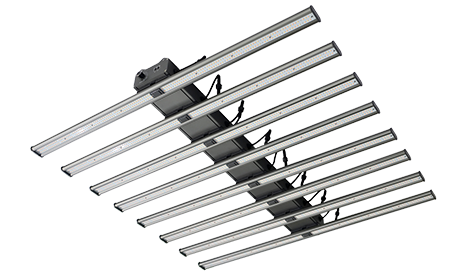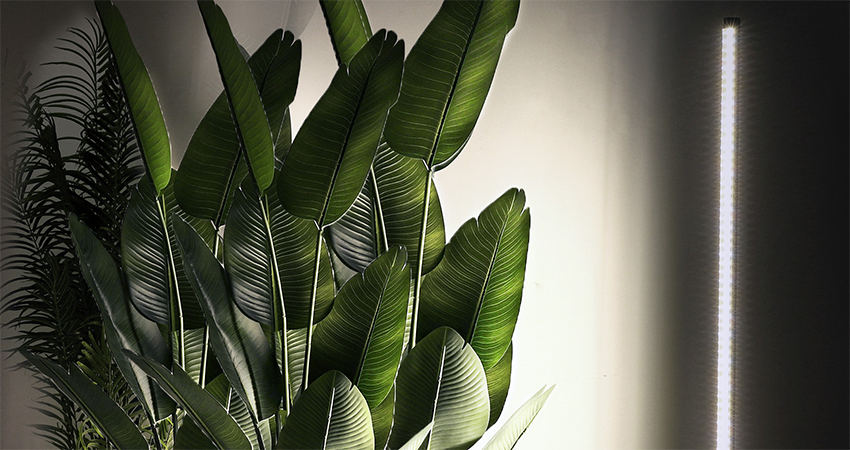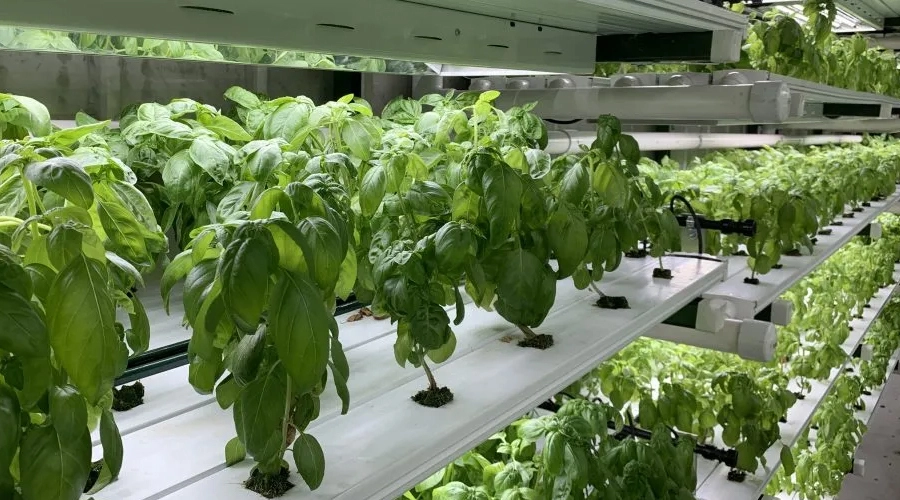A few days ago, I was scrolling through Reddit and came across a post that made me laugh out loud. A grower had shared a picture of his cannabis plant—tall and skinny, almost touching the ceiling, with bare stems at the bottom and just a tuft of leaves at the top. The title was hilariously vivid: “My plant’s ready for the NBA.”
I burst out laughing, but then quickly got serious—this wasn’t just a joke post. It was a textbook case of plant stretching, and one that beginner growers run into all the time.
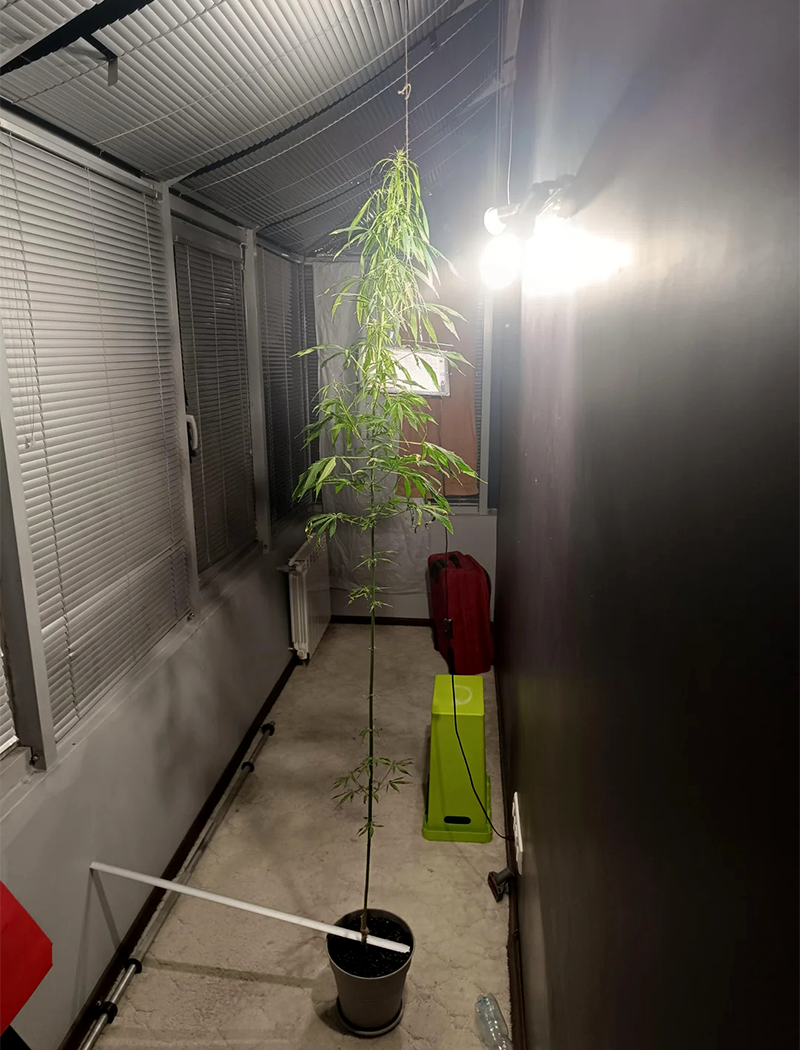
Looking at that photo, I was immediately reminded of my first grow. I thought as long as you had soil, water, and a light, the plant would just grow fine on its own.
But the truth is: if you give it the wrong kind of light, the plant will respond by stretching like crazy—basically screaming at you, “I can’t survive like this!”
Here’s what I want to walk you through next:
1. What is stretching, and why does it happen?
2. The direct link between light management and stretching
3. The 3 most common lighting mistakes beginner growers make
4. If your plant is already stretching—can it still be saved?
What Is Plant Stretching?
Simply put, stretching is when a plant grows upward in an unhealthy, desperate way due to suboptimal growing conditions. It might look like it’s getting taller—but what’s really happening is a survival response to problems like not enough light, excessive heat, or stuffy air.
Common signs of stretching include:
* Super thin stems, like toothpicks
* Very long internodes (the space between sets of leaves)
* Leaves bunched at the top with little to no branching below
* The whole plant looks like a stick and leans over with the slightest breeze
This isn’t “fast growth”—it’s the plant crying out,”I’m trying to survive here!”
Stretching ≠ Healthy Growth
Some beginners think that a taller plant means a healthier plant—but stretching is not real growth.
Here’s a simple 3-step check to help you tell the difference between stretching and healthy development:
Checkpoint | Healthy Growth | Stretching Condition |
Internode Spacing | Compact (2–5 cm) | Elongated (5–10 cm or more) |
Stem Thickness | Sturdy, supports top weight | Thin and weak, prone to bending |
Leaf Distribution | Evenly spread across layers | Crowded at the top, sparse below |
Cause of Stretching? Bad Lighting
Honestly, 90% of stretching issues can be traced back to one simple truth: the light isn’t right.
Here are the most common lighting mistakes—ones I’ve made, and that trip up most beginners:
Using the wrong light
When I first started, I tried using a regular household LED desk lamp—big mistake. Regular lights are not grow lights. They lack the proper light spectrum that plants need, especially blue and red wavelengths that drive healthy growth.
Hanging the light too high
If your light is too far above the canopy, the lower part of the plant gets almost no light. So the plant stretches upward, chasing the source. I used to think “the higher the safer,” worried about burning the plant—but ironically, this actually caused harm.
Not enough light hours
During the vegetative stage, your plant needs 16–18 hours of light per day. If it’s getting less, it’ll stretch its body to reach what little light it can find—desperate for more sun.

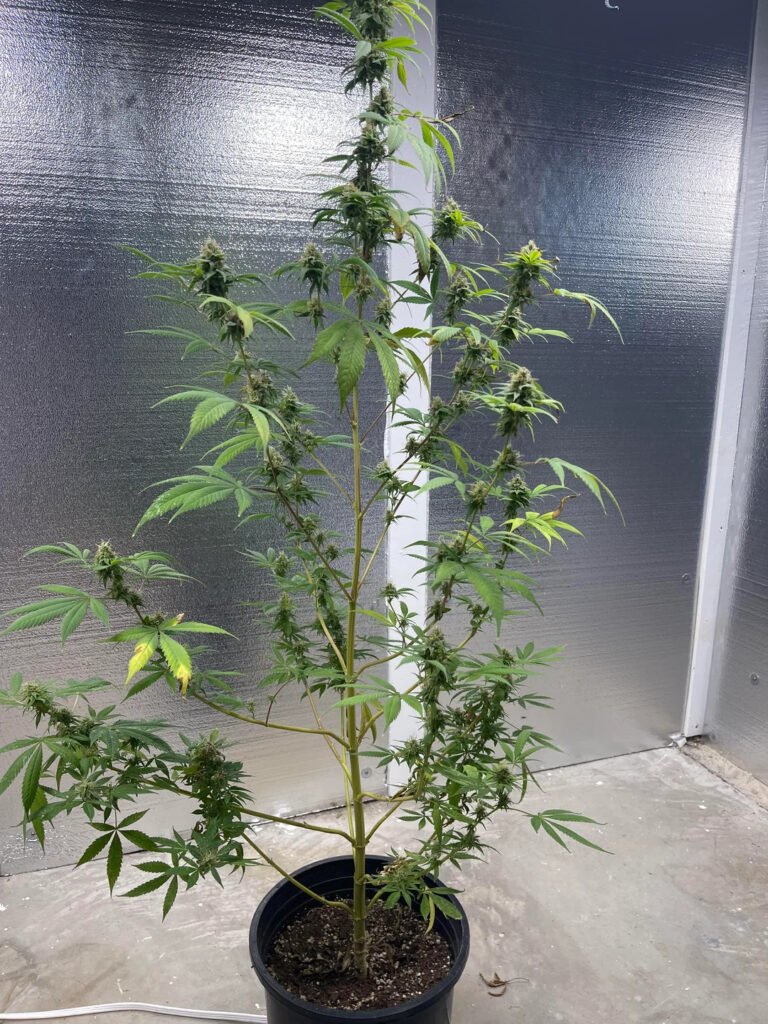
Can You Fix Stretching? Is It Too Late?
Good news: Yes, you can fix it—but you need to act fast.
I’ve tried a few different strategies—some work immediately, others take a bit of time and patience.
1. Lower the light (but don’t burn your plant)
Light intensity varies by type, but as a general rule, LED grow lights should hang about 30–50 cm (12–20 inches) above the plant canopy. Start at around 40 cm, and observe your plant’s response over a few days. Adjust as needed.
2. Use a proper grow light
Once I switched to a full-spectrum LED light with extra blue light, the stretching slowed down noticeably.
Blue light helps keep plants compact—it encourages leaf and branch development instead of vertical spiking.
3. Try LST or topping
Use Low-Stress Training (LST) by gently bending and tying the main stem sideways, or try topping (cutting off the tip). Both techniques reduce vertical height and encourage the plant to grow outwards instead of upwards.
4. Improve airflow
A gentle breeze helps strengthen stems and prevents heat buildup. Stretching often happens in stagnant, warm air—heat + stillness = stretch city.
5. Bury part of the stem
If your plant already looks like a tall stick, you can carefully re-pot it deeper, burying part of the lower stem. This gives the plant more stability and encourages new root growth from the buried section.
Don't Turn Your Plant into an NBA Player—What It Needs Is the Right Environment
Stretching doesn’t mean you’re doing a great job—it usually means the light you’re giving is either too weak or coming from the wrong direction.
When a plant starts shooting upward like crazy, it’s not growing—it’s trying to survive.
Lighting is the #1 productivity tool in indoor growing.
The right grow light doesn’t just prevent stretching—it also shapes your plant’s final yield and quality.
If you’re dealing with stretching right now, here’s what to do:
* Check your light’s wattage and spectrum—is it really suitable for plant growth?
* Adjust the height of your light and improve airflow.
* And if you haven’t bought a light yet—don’t rush.
First, check out our guide on how to choose the right LED grow light for your plants—so you can skip the frustration and grow smart from the start.
Jayes
Como gerente de marketing digital da AUXGROW, Jayes combina paixão por sistemas hidropônicos e experiência em luzes LED de cultivo. Com experiência prática e profundo conhecimento, Jayes guia você pelo mundo do cultivo sustentável.


